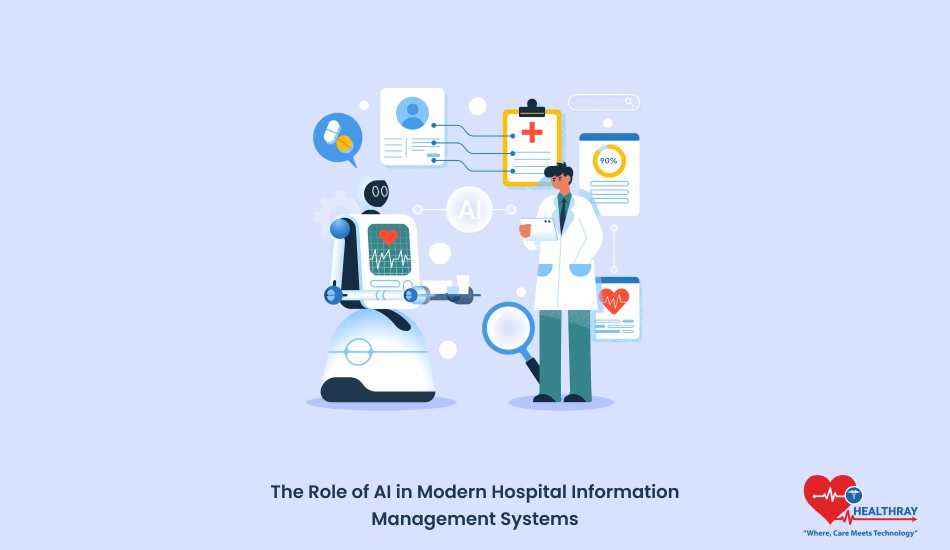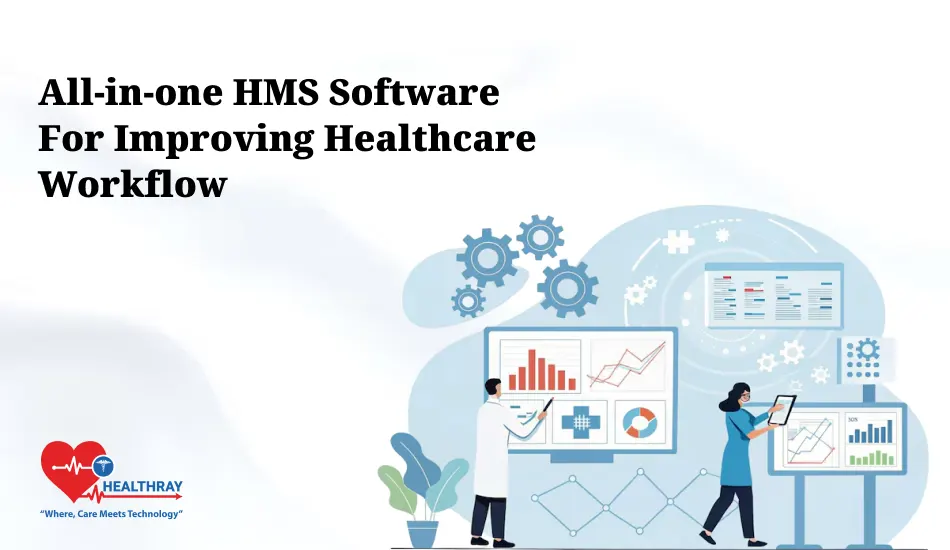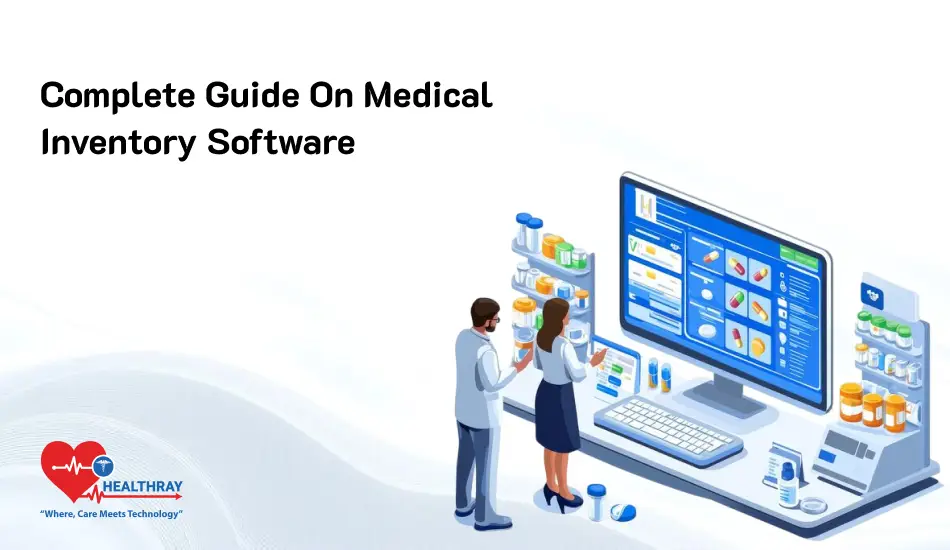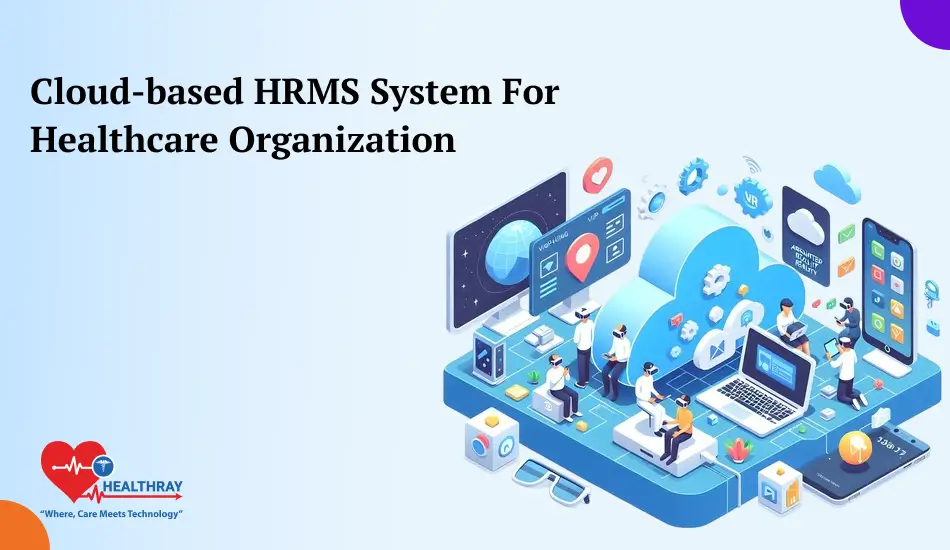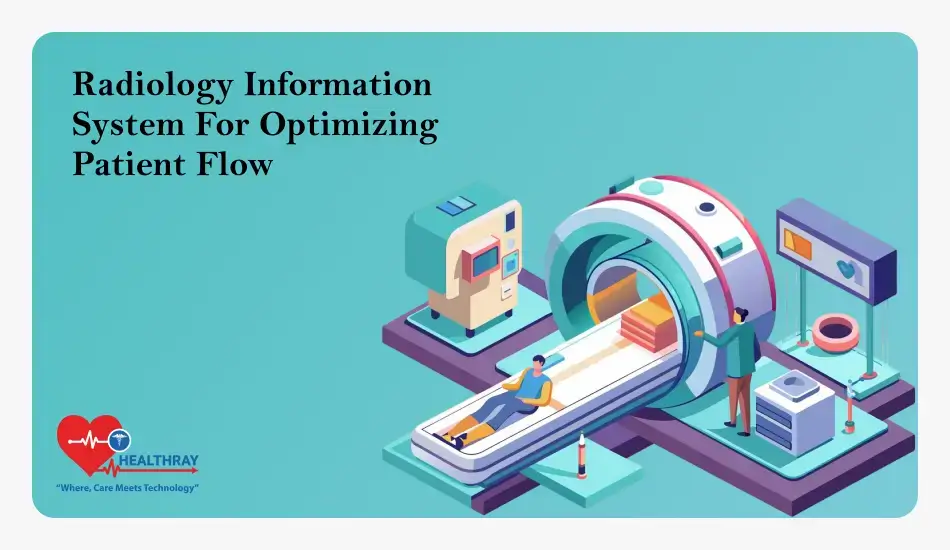AI is reshaping the way hospitals manage data, streamline operations, and deliver patient care. For healthcare administrators, IT managers, and policymakers, understanding the transformative potential of AI is no longer optional. It’s a necessity.
In this post, we’ll uncover how AI integrates into Hospital Information Management System, the benefits it brings, and the challenges it poses. Beyond the buzzwords, we’ll explore its real-world applications and future possibilities.
Benefits of AI Integration in Hospital Information Management Systems
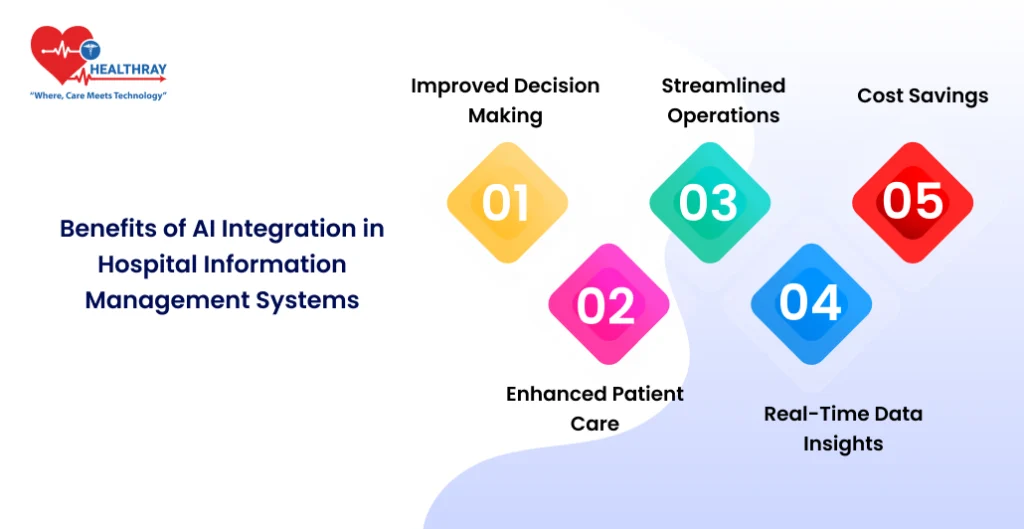
AI is a game-changer for hospital administration, not just a trendy term. It’s improving operational workflows and patient care by making systems smarter and more effective. Let’s dissect the main advantages.
Improved Decision-Making
AI helps administrators and clinicians make faster and more accurate decisions. Predictive analytics, for example, can forecast patient admission rates, helping hospitals prepare resources. Machine learning models can also analyze medical histories and suggest tailored treatment plans.
Enhanced Patient Care
AI-powered systems personalize patient care by analyzing large volumes of data. Chatbots and virtual assistants provide round-the-clock support, answering patient queries or reminding them about medications. This allows healthcare professionals to focus on more critical tasks.
Streamlined Operations
AI optimizes workflows by automating routine tasks like appointment scheduling, inventory management, and billing. This reduces human error and ensures that staff can concentrate on providing care rather than managing paperwork.
Real-Time Data Insights
With AI, hospitals can process real-time data from multiple sources. For instance, it can monitor patient vitals, flagging anomalies for immediate action. This proactive approach saves time and enhances patient outcomes.
Cost Savings
AI lowers operating costs by eliminating inefficiencies. Automated systems reduce administrative costs and increase overall productivity by handling repetitive tasks.
Challenges and Considerations in AI Integration
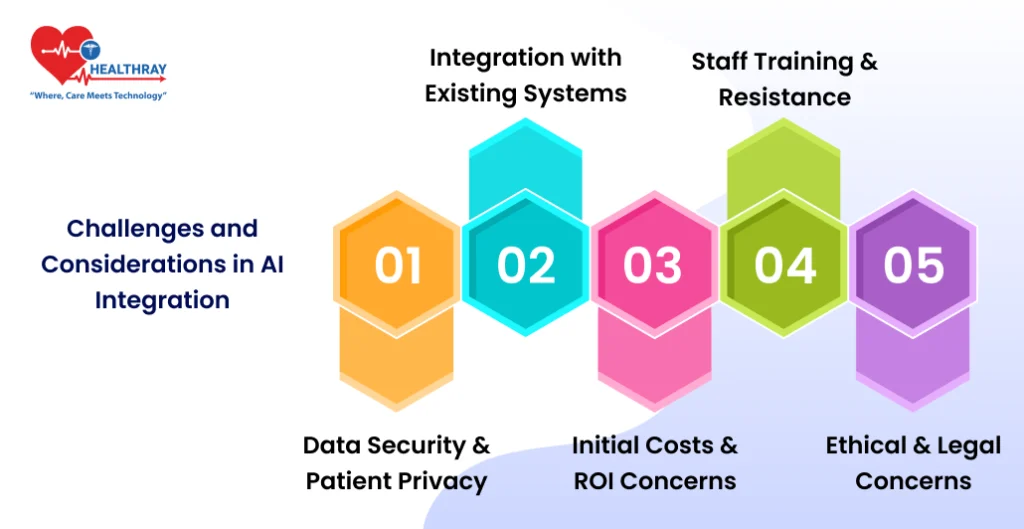
While AI offers immense potential for hospital information management systems, implementing it isn’t without its hurdles. Administrators, IT managers, and policymakers must navigate these challenges to ensure successful integration.
Data Security and Patient Privacy
AI systems rely on large datasets, often containing sensitive patient information. Safeguarding this data from breaches is critical. Ensuring compliance with privacy regulations, such as HIPAA, adds another layer of complexity.
Integration with Existing Systems
Most hospitals already have legacy Hospital Management Information Software in place. Integrating AI into these systems can be tricky. Compatibility issues and the need for significant upgrades often lead to delays and increased costs.
Initial Costs and ROI Concerns
AI solutions come with a hefty upfront investment. Hospitals may hesitate to adopt them without clear evidence of long-term cost savings or improved outcomes.
Staff Training and Resistance
Training administrative and medical personnel is necessary when implementing AI. Adoption may be slowed by resistance to change, particularly from people who are not familiar with cutting-edge technologies.
Ethical and Legal Concerns
AI’s decision-making processes can be opaque, leading to ethical dilemmas. For instance, if an AI system recommends a treatment that fails, determining accountability becomes a gray area.
Case Studies: Successful AI Integration in Hospitals
Real-world examples illustrate how AI is transforming hospital information management systems. These case studies highlight the tangible benefits and challenges of implementation.
AI-Driven Patient Monitoring
AI system to track patient vitals and forecast declines in health. By analyzing real-time data from monitors, the system can identify problems before they become more serious. Patient outcomes were enhanced and ICU admissions were greatly decreased by this proactive approach.
Predictive Analytics at Apollo Hospitals
Apollo Hospitals adopted AI-driven predictive analytics to forecast patient admissions. By analyzing historical data, the system predicts patient flow, helping administrators allocate resources more effectively. This led to improved operational efficiency and reduced waiting times.
Chatbot Implementation at Mayo Clinic
AI-driven chatbots were incorporated by the Mayo Clinic to manage patient inquiries and appointment booking. Because the chatbots offered round-the-clock assistance, administrative staff had less work to do. Because appointments were easier to manage and responses were quicker, patients expressed greater satisfaction.
Streamlined Inventory Management at Cleveland Clinic
Cleveland Clinic used AI to optimize inventory management. The system tracks supply usage, predicts demand, and automates orders. This reduced wastage, cut costs, and ensured critical supplies were always available.
Enhanced Radiology Interpretation at Massachusetts General Hospital
Massachusetts General Hospital deployed AI to assist radiologists in interpreting scans. AI systems flagged potential abnormalities, speeding up the diagnosis process and improving accuracy. This technology significantly reduced diagnostic errors.
Future Trends in AI for Hospital Information Management Systems
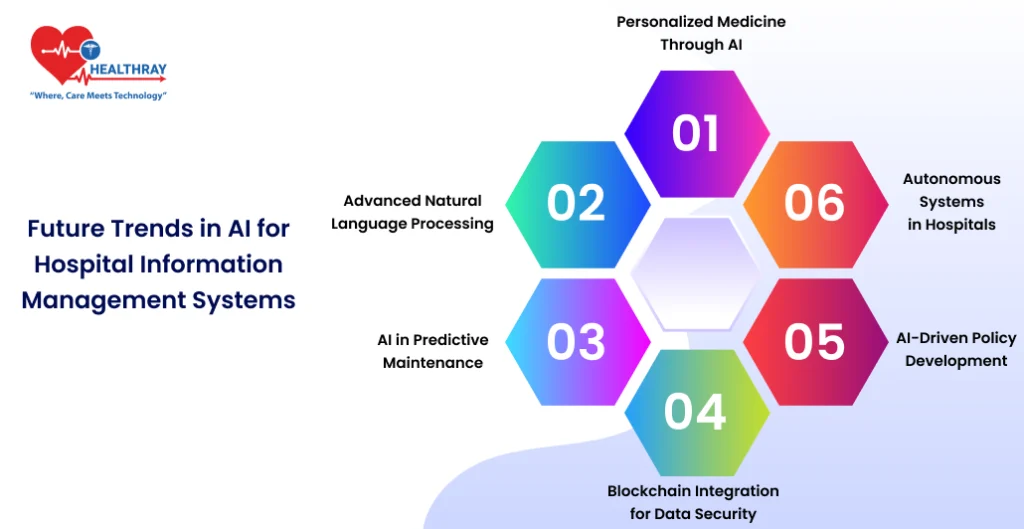
AI is evolving rapidly, promising even more transformative applications in hospital information systems. Here’s what the future holds for healthcare administrators, IT managers, and policymakers.
Personalized Medicine Through AI
AI is set to revolutionize personalized treatment plans. By analyzing genetic data and patient histories, AI will enable tailored therapies that improve recovery rates and reduce side effects.
Advanced Natural Language Processing (NLP)
As NLP technologies advance, they will enable smooth communication with hospital systems. By using voice recognition technology, physicians will be able to access patient records system and enter data hands-free, improving workflow efficiency.
AI in Predictive Maintenance
AI will predict equipment failures before they occur, minimizing downtime in critical hospital machinery. This proactive maintenance approach will save costs and prevent disruptions in patient care.
Blockchain Integration for Data Security
AI and blockchain technology will work together to enhance data security. Blockchain can create immutable records, ensuring that sensitive patient data remains secure while AI processes it for actionable insights.
AI-Driven Policy Development
Policymakers will use AI to analyze healthcare trends and outcomes, enabling evidence-based decision-making. AI models will simulate policy changes and predict their impacts, helping create more effective healthcare regulations.
Autonomous Systems in Hospitals
AI-powered self-operating systems will manage duties like sanitizing rooms, delivering supplies, and transporting patients. Human resources will be available for more specialized positions as a result of these advancements.
Conclusion
AI is no longer a futuristic concept for hospital information management systems. It’s here, making a real impact on how hospitals operate, care for patients, and manage resources. From improving decision-making and streamlining operations to addressing future challenges, AI’s role in modern healthcare is undeniable.
However, implementing AI comes with its set of challenges, such as data security concerns, integration complexities, and ethical questions. These require careful planning and collaboration among healthcare administrators, IT managers, and policymakers.The future of AI in healthcare is bright, with trends pointing toward more personalized medicine, advanced automation, and secure data management. By embracing these advancements, hospitals can pave the way for a more efficient Hospital Information System, better patient outcomes, and a stronger healthcare infrastructure.
